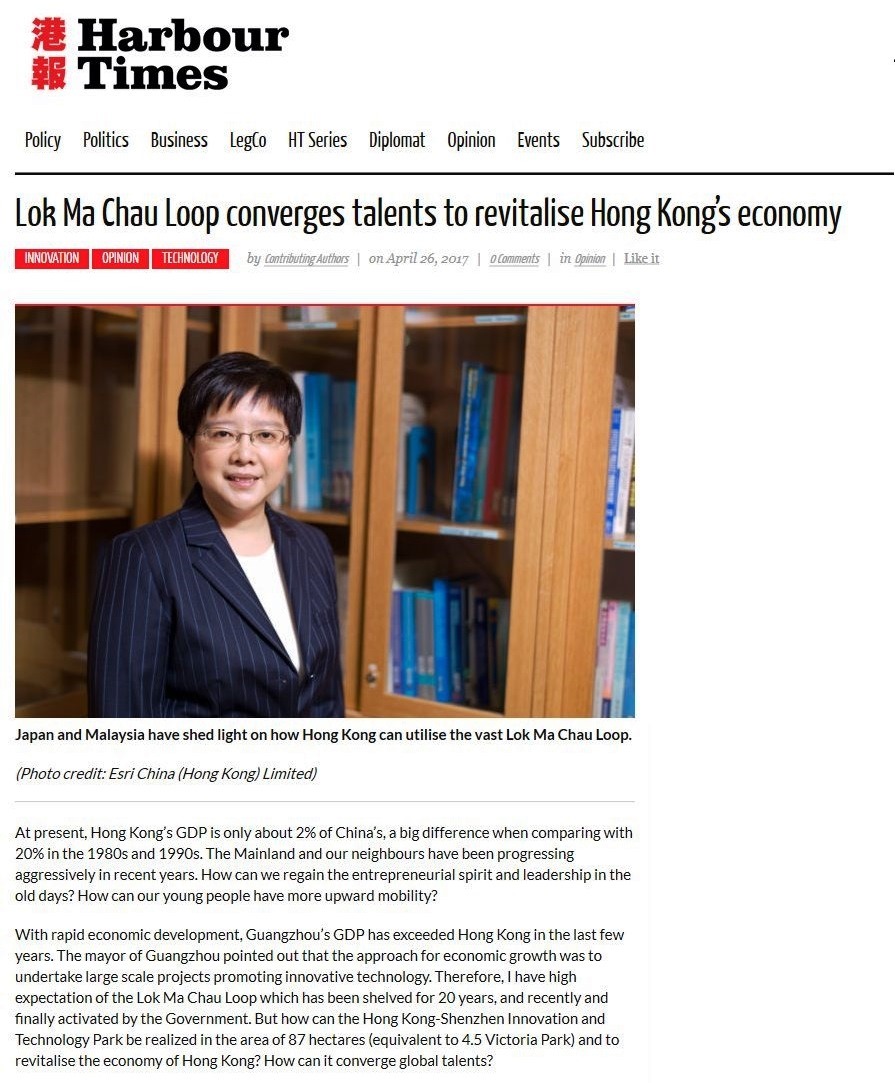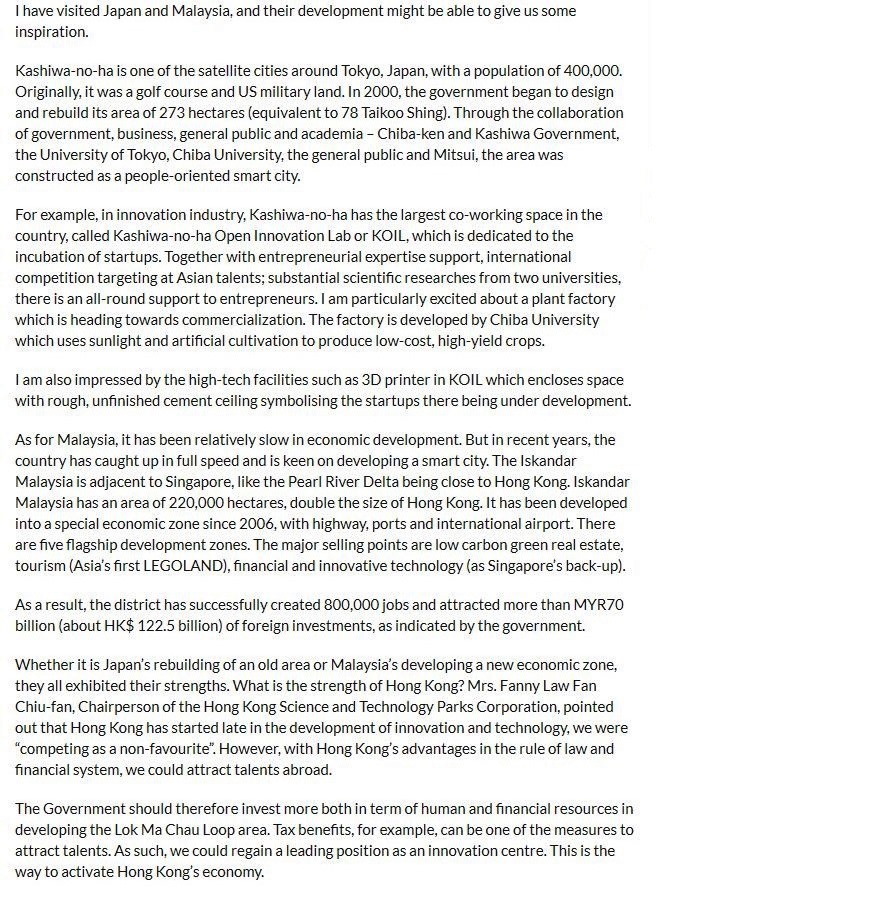網上版請按此


Lok Ma Chau Loop converges talents to revitalise Hong Kong's economy
At present, Hong Kong's GDP is only about 2% of China's, a big difference when comparing with 20% in the 1980s and 1990s. The Mainland and our neighbours have been progressing aggressively in recent years. How can we regain the entrepreneurial spirit and leadership in the old days? How can our young people have more upward mobility?
With rapid economic development, Guangzhou's GDP has exceeded Hong Kong in the last few years. The mayor of Guangzhou pointed out that the approach for economic growth was to undertake large scale projects promoting innovative technology. Therefore, I have high expectation of the Lok Ma Chau Loop which has been shelved for 20 years, and recently and finally activated by the Government. But how can the Hong Kong-Shenzhen Innovation and Technology Park be realized in the area of 87 hectares (equivalent to 4.5 Victoria Park) and to revitalise the economy of Hong Kong? How can it converge global talents?
I have visited Japan and Malaysia, and their development might be able to give us some inspiration.
Kashiwa-no-ha is one of the satellite cities around Tokyo, Japan, with a population of 400,000. Originally, it was a golf course and US military land. In 2000, the government began to design and rebuild its area of 273 hectares (equivalent to 78 Taikoo Shing). Through the collaboration of government, business, general public and academia – Chiba-ken and Kashiwa Government, the University of Tokyo, Chiba University, the general public and Mitsui, the area was constructed as a people-oriented smart city.
For example, in innovation industry, Kashiwa-no-ha has the largest co-working space in the country, called Kashiwa-no-ha Open Innovation Lab or KOIL, which is dedicated to the incubation of startups. Together with entrepreneurial expertise support, international competition targeting at Asian talents; substantial scientific researches from two universities, there is an all-round support to entrepreneurs. I am particularly excited about a plant factory which is heading towards commercialization. The factory is developed by Chiba University which uses sunlight and artificial cultivation to produce low-cost, high-yield crops.
I am also impressed by the high-tech facilities such as 3D printer in KOIL which encloses space with rough, unfinished cement ceiling symbolising the startups there being under development.
As for Malaysia, it has been relatively slow in economic development. But in recent years, the country has caught up in full speed and is keen on developing a smart city. The Iskandar Malaysia is adjacent to Singapore, like the Pearl River Delta being close to Hong Kong. Iskandar Malaysia has an area of 220,000 hectares, double the size of Hong Kong. It has been developed into a special economic zone since 2006, with highway, ports and international airport. There are five flagship development zones. The major selling points are low carbon green real estate, tourism (Asia's first LEGOLAND), financial and innovative technology (as Singapore's back-up).
As a result, the district has successfully created 800,000 jobs and attracted more than MYR70 billion (about HK$ 122.5 billion) of foreign investments, as indicated by the government.
Whether it is Japan's rebuilding of an old area or Malaysia's developing a new economic zone, they all exhibited their strengths. What is the strength of Hong Kong? Mrs. Fanny Law Fan Chiu-fan, Chairperson of the Hong Kong Science and Technology Parks Corporation, pointed out that Hong Kong has started late in the development of innovation and technology, we were "competing as a non-favourite". However, with Hong Kong's advantages in the rule of law and financial system, we could attract talents abroad.
The Government should therefore invest more both in term of human and financial resources in developing the Lok Ma Chau Loop area. Tax benefits, for example, can be one of the measures to attract talents. As such, we could regain a leading position as an innovation centre. This is the way to activate Hong Kong's economy.
Dr. Winnie Tang
Honorary Professor, Department of Computer Science, The University of Hong Kong